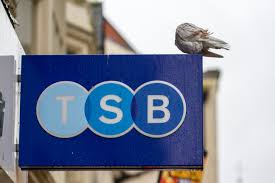The Bank of England (BoE) has increased its base rate by a further 0.5 percentage points to 3.5%.
This is the ninth consecutive hike announced by the Bank since December 2021 and leaves its base rate at its highest level for 14 years.
At the latest meeting of the BoE’s Monetary Policy Committee (MPC), members voted by a majority of 6-3 for the 0.5 percentage point increase. Two members preferred to maintain the base rate at 3%, while one member would have opted for a 0.75 percentage point increase, to 3.75%.
The latest increase follows the MPC’s November meeting that saw the biggest single increase to the base rate since 1989, when it voted to raise the benchmark rate from 2.25% to 3%.
According to the BoE’s latest report, the labour market remains “tight” and there has been evidence of inflationary pressures in domestic prices and wages that could indicate greater persistence, which it said “justifies a further forceful monetary policy response”.
“The majority of the Committee judges that, should the economy evolve broadly in line with the November Monetary Policy Report projections, further increases in bank rate may be required for a sustainable return of inflation to target,” the BoE stated.
Reacting to the news, Giles Coghlan, chief market analyst at HYCM, said: “After a year of successive interest rate hikes and soaring inflation, today’s decision from the BoE has not come as a surprise to economists or the markets, both of which had fully priced in another 50bps increase. While yesterday’s CPI reading provided some respite to the economy, the cost of living grinds on and a print of 10.7% hardly constitutes a Christmas miracle.
“At its last meeting, the central bank projected a five-quarter recession, and with the Autumn statement out of the way, fiscal conservatism is the BoE’s modus operandi. The UK is ultimately heading towards stagflation and a deep recession – especially if energy prices surge again once the Russian oil price cap and crude oil embargoes take place.”
Commenting on what the rise may mean for borrowers, Chairman of Air Club, Stuart Wilson, added: “While the 0.5% rise in the BoE base rate announced today will go some way to slowing rising inflation, it will not be popular with many borrowers – especially those who are coming to the end of their fixed rates and face huge payment hikes. Having hit a high of 11% in October, even with these measures, we are unlikely to see inflation returning to the BoE’s target of 2% until the end of 2023.
“However, interest rates are not quite as firmly attached at the hip to inflation rates as many presume and we are starting to see both the residential and later life lending markets settling into a more consistent pattern. There is no doubt that today’s announcement will have an impact but it is unlikely to be as drastic as we’ve seen recently.
“Older homeowners who may have been particularly hard hit by the cost of living crisis will be looking to their advisers for support.”
Latest News
-
Residential property transactions fall 24% month-on-month
-
Later life lending loans jump 5.1% in Q4 2025
-
Mortgage Awards 2026: Winners announced
-
FCA outlines proposals to close gaps in borrowers’ credit files
-
St. James’s Place closes 2025 with record FuM
-
Average LTV on UK mortgaged home drops to 59% – IMLA
Mortgage Advice Bureau and AI in the mortgage sector
Chief executive officer at Mortgage Advice Bureau, Peter Brodnicki, and founder and managing director at Heron Financial, Matt Coulson, joined content editor Dan McGrath to discuss how Mortgage Advice Bureau is using artificial intelligence to make advancements in the mortgage industry, the limitations of this technology and what 2026 will hold for the market
Perenna and the long-term fixed mortgage market

Content editor, Dan McGrath, spoke to head of product, proposition and distribution at Perenna, John Davison, to explore the long-term fixed mortgage market, the role that Perenna plays in this sector and the impact of the recent Autumn Budget
NEW BUILD IN FOCUS - NEW EPISODE OF THE MORTGAGE INSIDER PODCAST, OUT NOW

Figures from the National House-Building Council saw Q1 2025 register a 36% increase in new homes built across the UK compared with the same period last year, representing a striking development for the first-time buyer market. But with the higher cost of building, ongoing planning challenges and new and changing regulations, how sustainable is this growth? And what does it mean for brokers?
Does the North-South divide still exist in the UK housing market?

What do the most expensive parts of the country reveal about shifting demand? And why is the Manchester housing market now outperforming many southern counterparts?
In this episode of the Barclays Mortgage Insider Podcast, host Phil Spencer is joined by Lucian Cook, Head of Research at Savills, and Ross Jones, founder of Home Financial and Evolve Commercial Finance, to explore how regional trends are redefining the UK housing, mortgage and buy-to-let markets.
In this episode of the Barclays Mortgage Insider Podcast, host Phil Spencer is joined by Lucian Cook, Head of Research at Savills, and Ross Jones, founder of Home Financial and Evolve Commercial Finance, to explore how regional trends are redefining the UK housing, mortgage and buy-to-let markets.
© 2019 Perspective Publishing Privacy & Cookies











Recent Stories